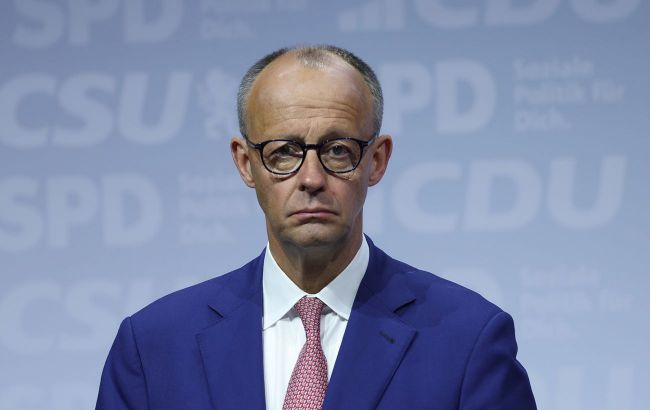Setback in Bundestag: Merz fails to become chancellor on first attempt
 Photo: Friedrich Merz (Getty Images)
Photo: Friedrich Merz (Getty Images)
The leader of the CDU/CSU bloc, Friedrich Merz, was not elected as the new chancellor of Germany. He lacked the necessary votes in the first vote in the Bundestag, according to German Tagesschau.
In the first round of voting, Friedrich Merz received 310 votes in favor, whereas 316 were required. 307 deputies voted against, and three abstained. A break has been announced in the Bundestag session to allow political groups to discuss the next steps.
It is notable that Merz’s coalition (CDU/CSU/SPD) nominally holds 328 seats in the Bundestag, yet he received only 310 votes - 18 fewer than expected, and more importantly, six short of the majority needed to confirm him as the next chancellor.
Unprecedented case
According to local media, this has never happened in the history of the Federal Republic of Germany.
Die Welt reports this is the first time a nominated chancellor has failed in the Bundestag after federal elections and successful coalition negotiations. Until now, all chancellors have always been elected in the first round of voting.
"Parliamentary groups are now discussing how to proceed; the session is on pause," the statement reads.
It is noted that if Merz believes he has a better chance of success in a second round of voting, he can run again at any time.
"The constitution sets a two-week deadline: if the candidate is not elected, the Bundestag can elect a federal chancellor within 14 days from the first vote by more than half of its members," writes Die Welt.
The media clarifies that Bundestag deputies currently have two options:
- All factions can agree to a shortened procedure to prepare for the second round of the chancellor election - if so, it may take place today.
- If no such agreement is reached, a new attempt to appoint the chancellor cannot occur before Friday, May 9.
Representatives of Merz’s CDU/CSU bloc say their faction is present in full and unanimously supports the chancellor. In that case, the reason for the failed vote lies with the other coalition partner - the Social Democratic Party. However, the vote is secret, so it is impossible to determine how each deputy actually voted.
According to reports, the largest opposition faction, Alternative for Germany (AfD), supported shortening the preparation time for the repeat chancellor vote. This means it could happen today or tomorrow.
What happens next
According to the rules published on the Bundestag website, to be elected, a chancellor candidate must receive an absolute majority of votes in the Bundestag - that is, at least half of the members plus one vote. This is sometimes called the "chancellor majority."
If the candidate does not receive an absolute majority in the first round, a second round is held. The Bundestag then has 14 days to elect another chancellor candidate.
If the second round also fails, the process enters a third stage. In the third round, a simple majority of those present is sufficient.
If the candidate receives an absolute majority in the third round, the President of Germany must appoint them. If only a relative majority is achieved, the president can either appoint them or dissolve the Bundestag and call new elections.
2025 Bundestag elections
After the collapse of the traffic light coalition, early Bundestag elections were held in Germany. On February 23, the Christian Democratic and Christian Social Union bloc (CDU/CSU), led by Friedrich Merz, won the parliamentary elections.
He spent several weeks negotiating to form a coalition, eventually joining with the Social Democratic Party. Just yesterday, on May 5, German Der Spiegel reported that the CDU/CSU conservative bloc and SPD leaders officially signed the coalition agreement.
Also yesterday in Berlin, a farewell ceremony was held for Olaf Scholz, stepping down as chancellor of Germany. During the event, he wished Merz a "steady hand" as the chancellor candidate.

